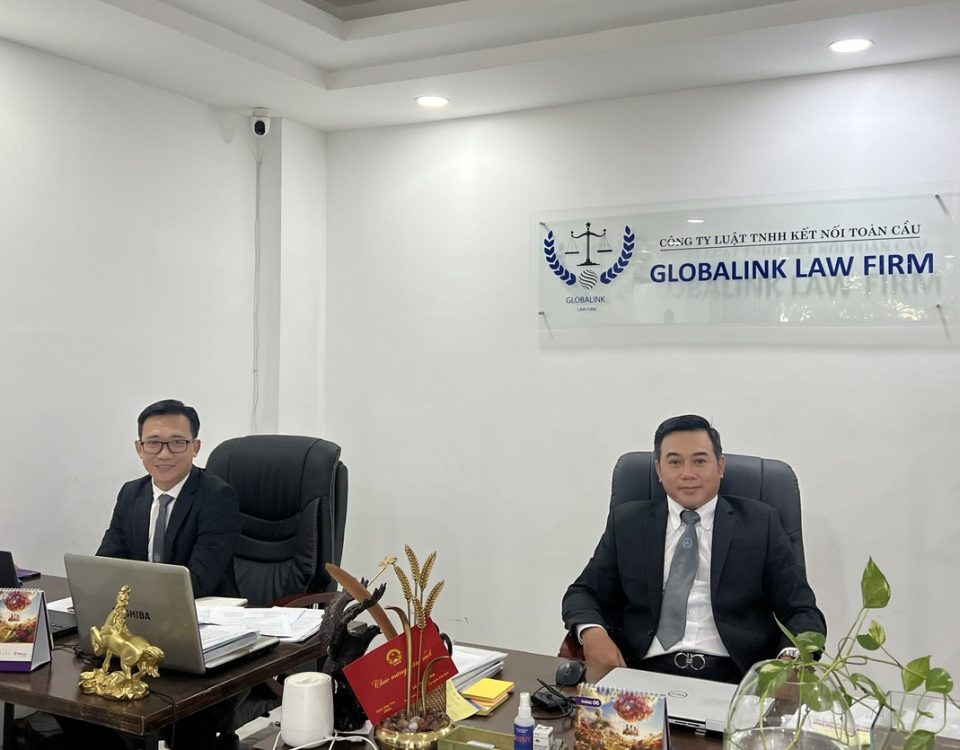- Have a question?
- +84 908 173 988
- tienvu.globalinklaw@gmail.com
Construction warranty regulations

Construction warranty regulations
Construction is one of the products created by mankind with their intellect and labour power. Even with intricate hands and quality perfection, it is inevitable to avoid the wear and tear caused by mother nature and the process of depletion through the use of man over time; In fact, there are a number of buildings that after being built and put into use, after a period of time have occurred cracking, breaking, degradation which affects the safety of those who occupy them. It’s important to understand the importance of construction warranties for the purpose of restoration, replacement, remediation of defects or damage to the construction in order to extend the life of the infrastructures; The law defines the responsibilities of individuals, organizations, investors, contractors, warranty liabilities, maintenance of the constructions. So nowaday, how is the law governing the requirement and warranty period of infrastructures?
1.Regulations on construction warranty requirements.
Section 4 – Construction Law 2014- No.50/2014/QH13 contains a separate provision on Guarantee, maintenance of constructions, in Article 125 of the provisions on guarantee as follows:
- The contractor is responsible for guaranteeing the construction he worked on. The contractor who supplies construction equipment, technology equipment is responsible for guaranteeing the equipment supplied.
- The construction warranty includes undo the damage, repair, replacement of every damaged equipment, defects caused by the contractor’s fault.
- The warranty period of constructions, construction equipments, technology equipments is defined by type, level of construction and the manufacturer’s regulations or contracts for the supply of equipments.
- The government has detailed the construction warranty.
This is guided by Article 28 of Decree 06/2021/ND-CP dated January 26, 2021, which sets out the following requirements:
- The construction contractors, the supplier of equipments is responsible to the investor for the warranty for the part of the construction carried out.
- The investor must reach an agreement with the contractors involved in the infrastructure construction regarding the rights and responsibilities of all parties as outlined in the construction guarantee.; the term of the warranty of the construction work, construction equipments, technological equipments; the measures, forms of the security; the guarantee value; the retention, use, refund of guarantee money, guaranteed assets, or any other forms of security with equivalent value. The aforementioned contractors are entitled to a refund of the guarantee, secured assets, or other forms of guarantee only after the warranty period ends and the investor confirms that they have fulfilled their guarantee obligations. For works using public investment capital or foreign state capital investment, the form of guarantee shall be prescribed by the bank’s warranty money or warranty letter. The duration and value of the guarantee are specified in paragraphs 5, 6, and 7 of this Article.
- Depending on the specific conditions of the project, the investor may come to an agreement with the contractor on a separate warranty period for one or several categories of construction or construction contracts, including the installation of equipments outside the general guarantee period for the project as prescribed in paragraph 5 of this Article.
- In the case of works in the construction process that have a defect in quality or have been repaired or remedied by the contractor, the warranty period for these works may be extended based on an agreement between the investor and the construction contractor before testing.
- The warranty period for new or renovated works and upgrades shall be calculated from the time the test owner has obtained the guarantee in accordance with the regulations and shall be prescribed as follows:
(a) Not less than 24 months for special level constructions and level I constructions using public investment or foreign state investment;
(b) No less than 12 months for the remaining levels of constructions using public investment or foreign state investment;
(c) The warranty period for other capital use works may refer to points (a) and (b) of this clause.
- The warranty period for construction equipments and technological equipments is defined in the construction contract but shall must not be less than the guarantee period prescribed by the manufacturer and is calculated from the completion of the installation and operation of the equipments.
- For works using public investment or foreign state investment, the minimum guarantee amount is as follows:
(a) 3% of the contract value for special level constructions and first-level constructions;
(b) 5% of the contract value for the remaining levels of constructions;
(c) The amount of money of the guarantee for other capital use constructions may refer to the minimum levels specified in points (a) and (b) of this clause.
According to the law, it is essential to understand the terms of warranty and amount of warranty money. For constructions using state capital investment, a minimum warranty period of 12 to 24 months with a guarantee amount of 3% to 5% is required. For projects using other sources of capital, it is advisable to refer to the minimum levels used for public-invested constructions. In practical, investors and contractors using non-public capital investment often set warranty periods ranging from 24 to 60 months.
Thus, when signing a construction contract, it is crucial to refer to the legal provisions on construction warranties to ensure compliance with the warranty period and the guarantee amount. The primary purpose of a construction warranty is to ensure that the building is constructed according to standards and can operate effectively once in use. When a contractor pledges a warranty, they agree to be responsible for repairing or replacing any component of the work if a problem arises during the warranty period due to their fault. For contractors, fulfilling the warranty commitment is an opportunity to demonstrate their reputation and quality by adhering to the guarantee commitments made. Beside reputable contractors, the practice in Vietnam is that many contractors often violate warranty commitments or warranties that are not properly committed. This leads to frequent disputes in the construction contract.
- The responsibility of the owners in the construction warranty.
During the construction warranty process, there are different responsibilities and roles in ensuring quality and dealing with the problems that arise. Other stakeholders who are also responsible for building warranties, such as architects, construction engineers and workers, also play important roles in the design, supervision and execution of the construction. However, the primary responsibility for warranty often lies with investors, contractors, and construction regulator parties.
In accordance with article 29 of Decree 06/2021/ND-CP, the liability of the entities in the warranty of constructions is as follows:
During the construction warranty period, when detection of damage or defects of the building, the owner, owner or manager, use the building to notify the owner to require the contractor to build the construction, contractor supplies equipment to carry out the guarantee. The construction contractor, the supplier of equipments shall guarantee the part of the work carried out by him after receipt of the warranty notice requested by the investor, owner or the manager, the use of the works for the damage arising during the guarantee period and shall bear all costs associated with the implementation of the security.
– The contractor of construction works, the supplier of equipment has the right to refuse the warranty in cases of damage, defects arising not from the fault of the contractor or due to the impossible cause stipulated in the construction contract.
In the event of damage or defect arising from the fault of the contractor, the investor has the right to use the guarantee money to hire the organization, other individuals to carry out the warranty.
The owner or manager, who uses the building is responsible for the proper implementation of the operating regulations, maintenance of the building during the process of exploitation, use of the construction.
– The owner is responsible for inspecting and testing the implementation of the warranty of the construction contractor, the supplier of equipment.
– Confirmation of completion of construction warranty:
At the end of the warranty period, the contractor executes the construction work and the supplier of equipment reports the completion of the guarantee work to the investor.
The investor is responsible for confirming the completion of the construction work guarantee to the contractor in writing and refunding the guarantee money (or discharge of the bank’s warranty letter of equivalent value) to contractors in the event that the results of the inspection, testing and implementation of the building works executing contractor, supplier of equipment in this section (4) is required;
The owner or manager, the user of the work is responsible for participating in the confirmation of the completion of the construction work warranty to the contractor and supplier of equipment at the request of the investor.
(6) Construction’s survey contractors, constructions design contractors, construction contractors and suppliers contractors of construction equipments and other relevant contractors are responsible for the quality of the part of the work they perform, including after the warranty period.
(7) For housing constructions, the contents, requirements, liabilities, forms, values and terms of warranty shall be implemented in accordance with the provisions of the housing law.
As you can see, construction warranty is an integral part and plays a crucial role in ensuring the quality and stability of a building after completion. In modern society, constructing and maintaining buildings significantly contributes to improving the quality of life for communities. Therefore, when participating in signing a construction contract, it is essential for the parties to carefully review and discuss the terms to ensure that the guarantee amount is appropriate and fair. This will help ensure that the construction works are properly maintained and repaired throughout the warranty period, thus ensuring the stability and safety of the construction in the future.
———————————————
Above is an article sent to you by Globalink’s team of legal experts. Globalink hopes that it has partly helped you solve the initial problem.
In case you or other readers still have other questions, please contact Globalink’s legal team via the following information:
Hotline phone number: 0908.173988 – Mr. Vu Quyet Tien (Lawyer)
Email: Tienvu.globalinklaw@gmail.com
Or go to the Company headquarters: 67/4 Hoang Hoa Tham, Ward 6, Binh Thanh District, Ho Chi Minh City
Transaction office: 656/47 Đ. Cach Mang Thang 8, Ward 11, District 3, Ho Chi Minh City, for more specific advice and guidance from us.
Article author: Nguyen Thi Huynh Nhu. Phone number: 0816322304
Translator: Bui Minh Đức



